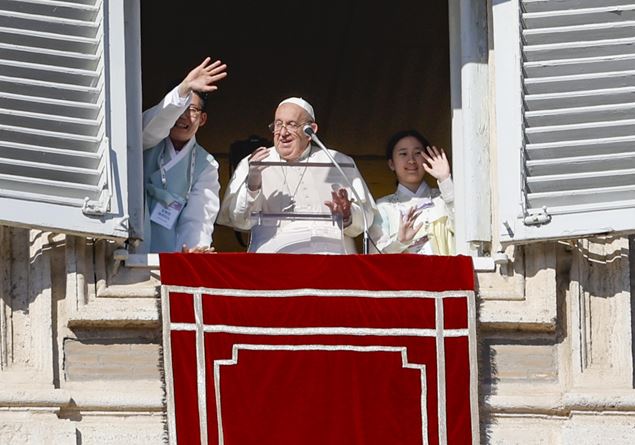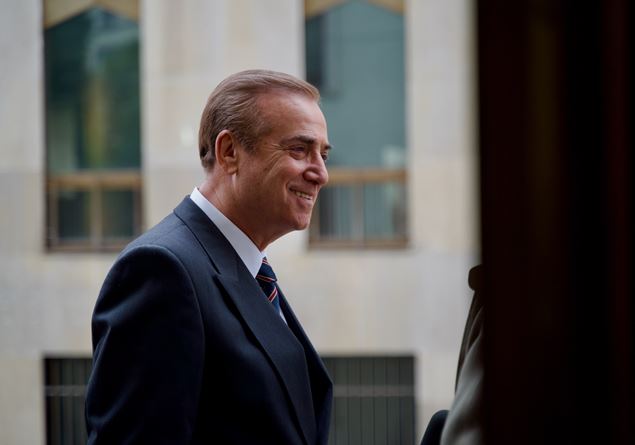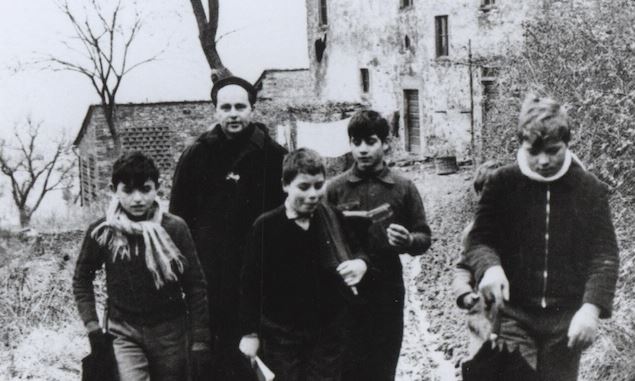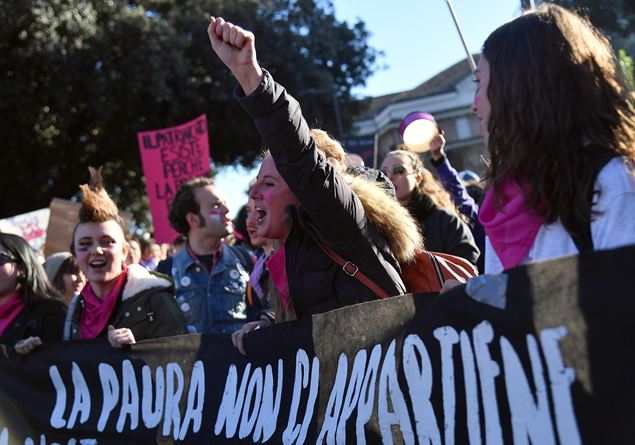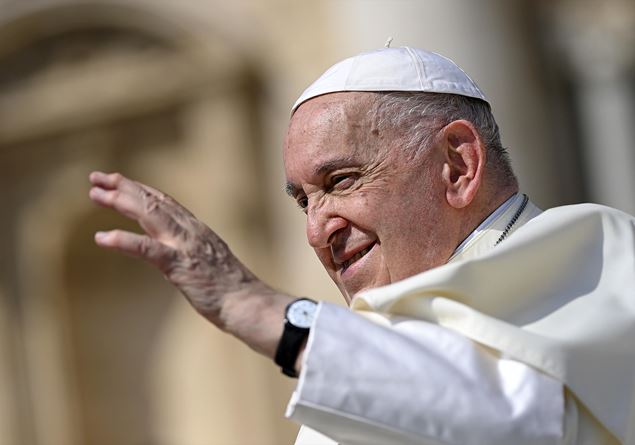
The cover of Livio de Santoli’s book.
Pope Francis «flanked» by some of the most beloved international pop stars, from David Bowie to Bob Dylan, from Peter Gabriel to Patty Smith, Brian Eno, Cat Stevens/Yusuf and, even, the very Italians Lucio Battisti, Mogol and Ivano Fossati. This is the symbolic team put together by the Pro-Rector Magnificent of the University La Sapienza of Rome, Livio De Santoli, professor of physics and scientist, in his latest book dedicated to energy transition and environmental protection. President of the degree courses in energy engineering – for years a professor at the historic faculty of Architecture «Valle Giulia» in Rome where he was also the first engineer dean –, author of over 250 publications, the professor in the volume – Castelvecchi editore – talks about energy policies «using» the singer-songwriters most attentive to environmental issues. But also of Jeorge Mario Bergoglio, the Pope who more than any other of his predecessors – recalls De Santoli – preaches the defense of nature in the footsteps of Saint Francis. In the text – title «Regeneration», subtitle «Environmental justice and energy in the Europe of the future», preface by Pier Virgilio Dastoli – each chapter is introduced by a singer-songwriter, giving life to an unprecedented energy-environmentalist pop gallery. The first testimonial is Pope Francis who «in Laudato Sì, the 2015 environmentalist encyclical-manifesto, – writes De Santoli in the introduction – urges men and women of good will, and those responsible for institutions, to stop the environmental degradation that disfigures nature, the supreme Gift of God made to all humanity». But not only that. «The Pontiff also denounces the advance of moral and spiritual degradation, which, like environmental degradation, endangers the life of the planet and all its creatures». Therefore «in Laudato Sì he invites society to ask itself urgent questions, without further waste of time, in defense of the environment and in matters of cultural ecology, ecology of daily life, the principle of the common good, justice between generations…». And to better underline its “urgency”, the professor after the Pope cites Five Years (Five years), the opening song of Ziggy Stardust recorded by David Bowie in 1972, “a despotic song that foretells the end of the world within the next 5 years”. A danger foreshadowed with “pain and impotence, confusion and desperation of having such a limited time available, with the urgency to do things, see people, visit places, which he will miss in those 5 years before the end…”. “Perhaps that urgency was real, but probably – the author notes – it was necessary to exploit it to do something while there was still time”, with an evident reference to the urgency of intervening today on the environment and sustainable energy.
After Bowie, Bob Dylan for the chapter on the «Need for a paradigm shift» on the theme «The Just Transition: Energy in Europe in the Near Future», with the 1962 song, The Times They Are a-Changin, in which the singer «expresses his enthusiasm for the times that were a-changin…». Words that, however, more than half a century later, clash with a completely different, betrayed reality, which Dylan himself describes in Things Have Changed of 2020, acknowledging that «the hope of young people clashes with the recipe for something that is beyond their reach…». Hence, according to De Santoli, the «need» for «a turning point, for a disruptive change, disruptive as we would say today, that leads to a solution to the current crisis starting» by reconsidering «the energy model, because in this case the ideas are clear». And as an example he indicates «the European legislation on decarbonisation, the European Green Deal, the FitFor55 and the RepowerEU which define very stringent objectives and timeframes…».
On the topic of “Political ecology: where should Europe go?”, space is given to People Have the Power, a success by Patti Smith from 1988, where it is theorized that “responsible action by each individual increases their awareness of contributing to a just cause”. A suggestion that, for the professor, sounds like a valid response to the current environmental crises. It is no coincidence that “climate politics is taking on a fundamental role…at the center of the public and private scene…bringing to light a series of critical issues, many of which are only capable of generating an air of confusion around the main themes”.
In the chapter on «Regeneration and happiness» the 2022 album ForverAndEverMore comes into play, in which Brian Eno addresses «the central role of art and imagination in the fight against climate change…». In continuity with Fake Plastic Trees by Radiohead from 1995. A song that offers De Santoli the opportunity to talk about «Energy as a common good» starting from the alarm «against addiction and renunciation» denounced by Fake Plastic Trees, almost «an ecological manifesto against the plastic that is invading the planet». Hence the invitation to make the third millennium «the era of common goods, in which we will begin to take care of our goods if only to stop exploiting them, as we have done in the last two centuries».
The pages on «Energy transition and the beauty of a renewable world» are introduced by a song from Peter Gabriel’s 2023 album, I/O (Input/Output), a hymn on the importance of «networking and joining forces» for «a sustainable ideology… to demonstrate the importance of interconnecting everything with everything…». Words that on the subject of energy transition make the author say that «if there is planning, which for individual states takes the name of National Energy and Climate Plan, each country is called upon to have European projects approved and to follow the indications contained therein…».
The historic duo Lucio Battisti-Mogol introduces the theme of Renewable Energy Communities and the democratization of energy with Umanamente uomo: il sogno (1972). A piece initially performed only instrumentally, but which in the 1999 text speaks of the importance of dreaming because “a dream without ambitions” does not produce concrete results. A warning that is also useful for energy policies. Cat Stevens/Yusuf, with Where Do the Children Play? instead offers the cue to introduce the chapter on “Changing the cultural model, the role of universities”. It is a piece in which – De Santoli reasons – “technological progress was perceived as the cause of the degradation of the environment and of the individual… a problem that persists over time” and which is the cause of “climate change, depletion of the food chain and loss of biodiversity. It is a timeless song, which confirms the dramatic impact that the theme of environmental conservation has on society…”.
The book also mentions free will in the chapter “Searching for the cost of freedom, but also that of confusion”, with lyrics by several singer-songwriters. Like Neil Young who in 1970 with After the Gold Rush presents “a real environmentalist manifesto, which took up the hopes and desire for renewal of the kids of the Seventies”. In tune with Stephen Stills who in Find the Coast of Freedom denounces the death of 4 students at the University of Kent in a clash with the police. And then again, King Crimson who in the song Epitaph from 1969 warn that another cost to pay “is that of confusion, a useless cost, but no less expensive for that”.
The volume closes with Ivano Fossati who in the song C’è tempo from 2003 recalls, with biblical tones, that «there is a time to sow and a time to wait…». To confess with bitterness: «I instead say that there was a dreamed time that had to be dreamed». Ultimately, for De Santoli «the strategic lines to carry out a just energy transition are all there. But just means democratic and democracy means freedom». Even with the help of dreams.


